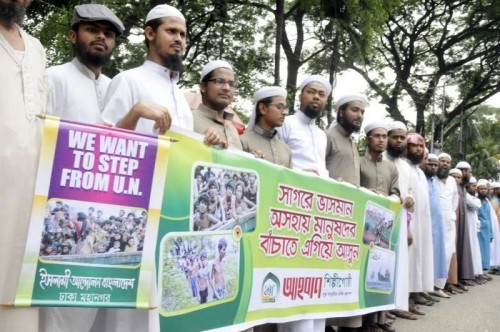
Malaysia has confirmed the discovery of graves holding the bodies of migrants and at least 17 hidden detention camps formerly used by human-trafficking groups.
Interior Minister Ahmad Zahid Hamidi said the camps were found near the northern town of Padang Baesar, on the border with Thailand, the Malaysian Star reported on Sunday.
“Each grave has perhaps three, four bodies. But we still don’t know how many there are in all. We’re probably going to find more,” the minister said.
“Malaysia as a government is not implicated. But Malaysians, yes, I admit that it’s a fact,” he said.
Police inspector general Khalid bin Abu Bakar is at the location to direct the investigation of the camps, which were used by traffickers to hold the immigrants until their families paid a ransom.
The camps were abandoned before being discovered by police.
Malaysian authorities have determined the bodies found in the graves to be immigrants from Bangladesh and Myanmar, many of them of the Rohingyas, a Muslim minority that is fleeing alleged persecution in Myanmar.
The finding of camps in early May in the southern Thai province of Songkhla sparked a campaign by authorities in the region against human trafficking and has resulted in the breaking up of several trafficking networks.
In the days that followed, hundreds of migrants sailed to Thailand, Malaysia and Indonesia despite attempts by those countries’ navies to intercept them and block the route.
It is believed that the human traffickers abandoned the boats, leaving the men, women and children on board in a precarious position.
Last Wednesday, the governments of Indonesia and Malaysia agreed to temporarily accept all the Bengalis and Rohingyas who are currently on board boats in the region, provided that the international community made a commitment to relocate them in third countries or to repatriate them within a year.
The Rohingyas are not recognised as citizens in Myanmar or Bangladesh.